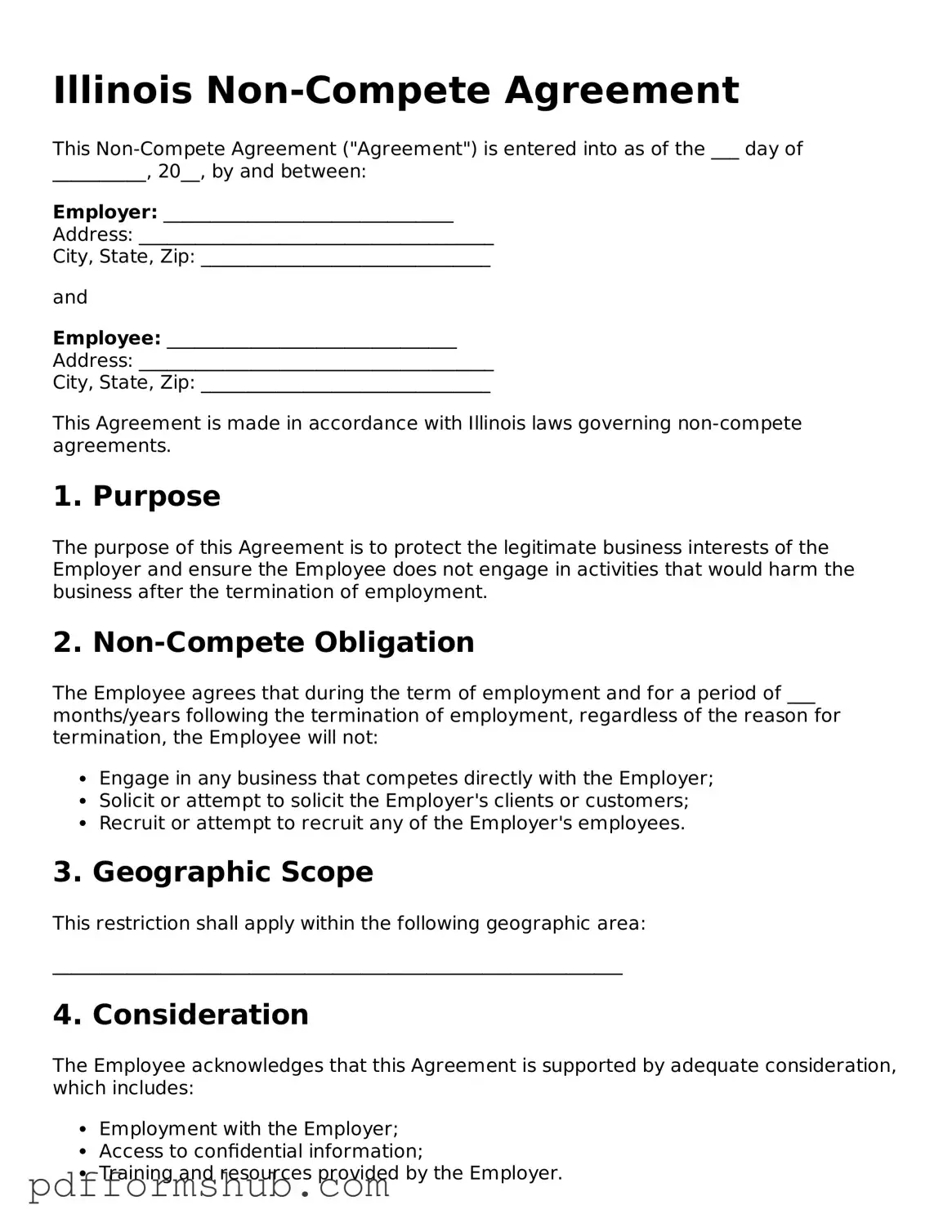Attorney-Verified Non-compete Agreement Form for Illinois State
A Non-compete Agreement in Illinois is a legal contract that restricts an employee from working for competitors or starting a competing business for a specified period after leaving a job. These agreements aim to protect the employer's business interests and confidential information. Understanding the terms and implications of this form is essential for both employers and employees.
To fill out the Non-compete Agreement form, click the button below.
Customize Form

Attorney-Verified Non-compete Agreement Form for Illinois State
Customize Form

Customize Form
or
Free PDF Form
Short deadline? Complete this form now
Complete Non-compete Agreement online without printing hassles.